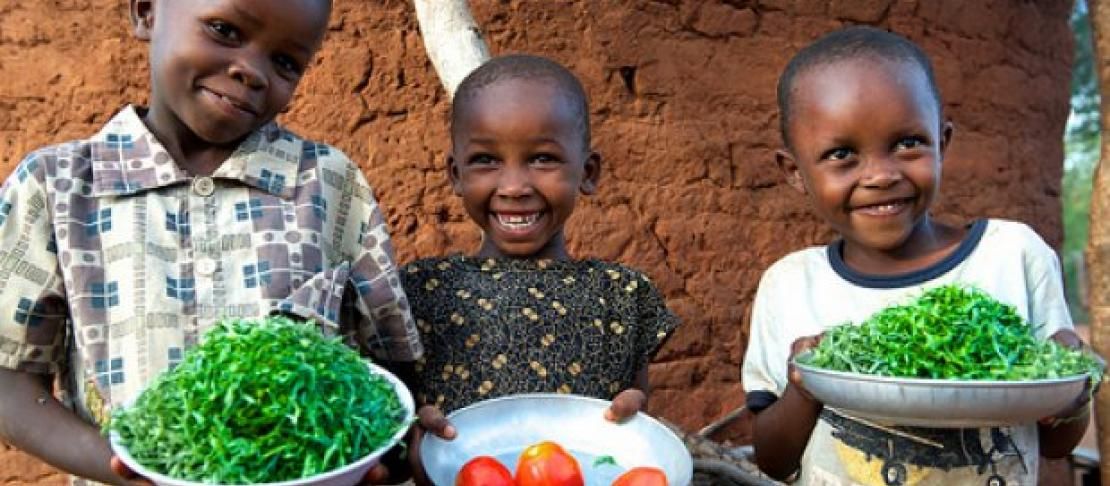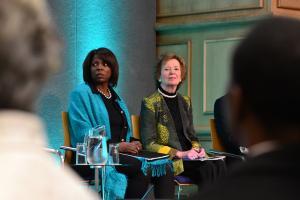Talking hunger: How can words be translated into action?

by Cecilia Schubert
One of the greatest failures of the global system is unequal and inadequate access to food. As a consequence, children in poverty-stricken areas are not reaching their full potential, stunting in growth before reaching adult life.
Even if the world has witnessed significant gains in poverty alleviation in the past 100 years, far too many still live in powerlessness and harsh conditions. Many struggle daily to feed themselves and their families, said H. E. Michael D. Higgins, President of Ireland in his opening speech at the Dublin conference on Hunger, Nutrition and Climate Justice. President Higgins addressed an audience representing 60 different countries, many of them farmers and development practitioners from the developing world.
On top of the many going to bed hungry everyday, we now need to manage the complex layers of climate change, he continued.

Changing weather patterns are putting stress on rural communities who are now struggling to foresee rain periods for planting. With climate change, traditional knowledge on how to predict weather events may no longer be enough, as the knowledge is based on patterns that are currently in flux.
Mary Robinson, President of the Mary Robinson Foundation – Climate Justice, said in her speech that for many, climate change is the last straw. Climate change doesn’t discriminate, it affects those who have contributed least to the problems the most, she continued with affirmation.
President Higgins also addressed the problem of increasing food prices, saying that extreme climate events undermine poor peoples' capacity to secure a sustainable diet and nutritious food. The consequences of surging food prices, doubling in the last few years, is present everywhere. Hunger walks in its footsteps. Food issues must be confronted, he emphasized.
This is why we are here, in Dublin, discussing how to ensure that the knowledge that farmers, development practitioners, agricultural extension workers and others have accumulated gets shared with the rest of the global donor and development community. Read the conference case studies that have been shared by the delegates from developing nations.
This conference might be the first step towards ensuring that words are translated into action, as we feed lessons learned into the Post2015-agenda, currently discussing what should replace the soon expiring Millennium Development Goals. But at the same time, these development practitioners also represent action. They show that actions to reduce hunger and under-nutrition are already being taken, on farms and in local communities.
There's still much to learn when it comes to creating resilience, fighting hunger and malnutrition, and adapting agricultural sectors to climate change. Therefore, what needs to be done is to instead listen to the people dealing with these issues on a daily basis and hear their messages. We also need to realize that smallholder farmers play a key role when it comes to ensuring food for all, as they produce it. They need support to help create resilience and increase yields.
So open your ears and take in the information that practitioners want to share. Listening to the people who knows what is happening on farms is one way to help initiate development and in the end, eliminate hunger.
Read selected stories, and join the discussion on Twitter using #HNCJ - we want to hear from you!
Empowering a local community to address climate risks and food insecurity in Lower Nyando, Kenya
Cecilia Schubert is a Communications Assistant at CCAFS. The CCAFS team is reporting live from the Hunger, Nutrition, Climate Justice conference in Dublin from 15-16 April 2013. Watch live webcasts at www.eu2013.ie and follow updates on the CCAFS blog. Engage with us on twitter @cgiarclimate using #HNCJ.